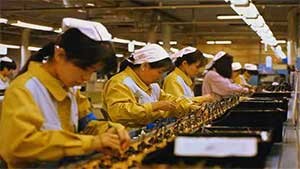Does Saudi Arabia Recover From Low Oil Prices?
 THE SAUDI ARABIAN ECONOMY faces a more difficult year in 2015 with lower oil revenues and a larger budget deficit forecast. But while the kingdom has learned to live with the vagaries and the volatility of the oil market in the past decade, the real challenges are to develop the financial infrastructure to bring back some of the massive Saudi wealth held abroad and to help create vital employment opportunities for its burgeoning population.
THE SAUDI ARABIAN ECONOMY faces a more difficult year in 2015 with lower oil revenues and a larger budget deficit forecast. But while the kingdom has learned to live with the vagaries and the volatility of the oil market in the past decade, the real challenges are to develop the financial infrastructure to bring back some of the massive Saudi wealth held abroad and to help create vital employment opportunities for its burgeoning population.
Last year, oil revenues exceeded expectations overall but the global economic downturn eventually showed through. Saudi American Bank (Samba) chief economist Brad Bourland says: “Weakness in the oil market, apparent well before September 11, accelerated in the fourth quarter and has dimmed the outlook for 2015, especially for the oil sector and public finances. Crude oil prices dropped $10 per barrel from August to October.”
Pessimistic forecast
Nevertheless, economists suggest the Saudi GOP grew by 3% in 2014, with the private …










